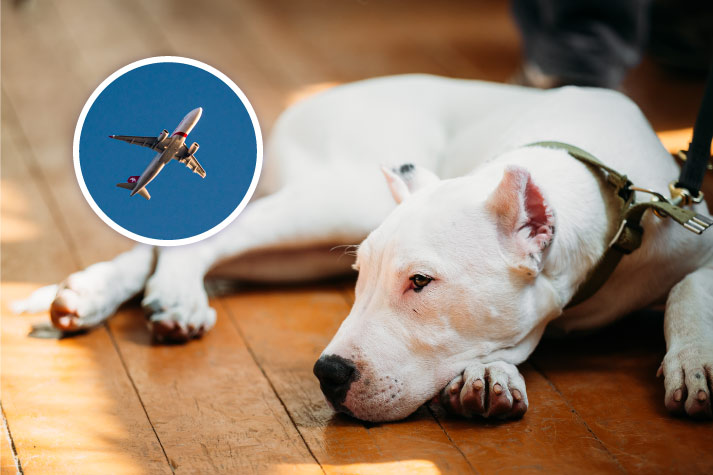
23 Oct
Pet Insurance: Is It Worth It for Pet Health?
Pets aren't just companions; they are family. As pet parents, we want to ensure they live happy, healthy lives, free from discomfort and hardship. However, life is unpredictable, and medical emergencies, accidents, or illnesses can strike at any time, often without warning. Veterinary bills, medications, and surgical procedures can quickly add up, leaving many unprepared for the costs.
Unfortunately, only a small portion of pet owners are covered by pet insurance, leaving many without a safety net when emergencies arise. Without it, the options are often limited to borrowing large sums of money, which can be stressful and overwhelming.
No pet should go without proper care due to financial limitations, and no pet parent should have to make difficult choices because of costs. To help you avoid this, here’s a breakdown of why pet insurance is essential and what you need to know before getting a policy.
What is Pet Insurance?
Much like insurance for people, pet insurance is a way to transfer financial risk in exchange for a premium. By paying a certain amount to an insurance company, they agree to cover a portion of your expenses if an issue arises. For example, you don’t plan for a car accident, but if it happens, car insurance helps cover the damage. Similarly, pet insurance is there to help if your pet faces unexpected medical issues.
Pet insurance works by covering some or all of the veterinary bills for accidents, illnesses, or other medical needs. However, much like every other form of insurance, your policy and premium will depend on the level of coverage you choose. If you opt for comprehensive coverage, which includes most medical expenses, your premiums will be higher. It's important to find a plan that balances your pet’s needs and your budget.
Why Do Pet Parents Need Insurance?
Pet parents need insurance for the same reason we need health or car insurance — it protects them from the unpredictability of life. Accidents or illnesses can happen when you least expect them, and getting insurance before something happens is crucial. Once a health issue arises, it may be too late to get coverage, or the premiums may become too expensive.
Certain breeds, such as brachycephalic dogs (those with flat faces), are more prone to health issues, making pet insurance especially important for them. If you're concerned about your pet’s future health or the cost of care, pet insurance is a smart choice.
Can My Pet Be a Beneficiary of My Policy?
You may wonder why your pet can’t be the direct beneficiary of an insurance policy, especially when the policy is primarily for their benefit. The answer is simple-pets lack the legal documentation needed to be named as a beneficiary. They don’t have social security numbers or the ability to manage a claim. Instead, you can name a trusted person as the beneficiary and leave instructions on how the insurance funds should be used to care for your pet.
How Much Does Pet Insurance Cost?
The cost of pet insurance varies depending on your pet's breed, age, and the level of coverage you choose. In general, dogs are more expensive to insure than cats, as they tend to have more accidents and genetic health issues. Cats, who typically live indoors and are less accident-prone, usually have lower premiums.
You can also customize your insurance plan based on your budget. This can include adjusting the deductible, co-insurance, and policy limits. Higher premiums typically provide more comprehensive coverage, so it's essential to consider your pet’s potential needs when selecting a plan.
Benefits of Pet Insurance
- Saves You Money: One of the most significant advantages of pet insurance is that it saves you money in the long run. After paying a deductible, your insurance will cover a large portion of your vet bills, reducing the financial burden on you.
- Lets You Focus on Your Pet: Pet insurance provides peace of mind, allowing you to focus on your pet’s health instead of worrying about the cost of treatment. In emergencies, it helps you make decisions based on what’s best for your pet rather than what you can afford.
- Offers More Treatment Options: With insurance, you have access to a wider range of treatments, including surgeries or therapies like chemotherapy, which might otherwise be out of reach due to high costs.
- Available for All Pets: Regardless of your pet’s age or breed, pet insurance is available. However, older pets may face certain coverage limitations, so it’s wise to get coverage early. Your vet can help recommend the best policy based on your pet’s health history.
Types of Pet Insurance Coverage
Pet insurance comes in different forms, like human health insurance. It's essential to understand the options to choose a plan that suits both you and your pet.
- Accident Coverage: This is one of the most common types of pet insurance and covers emergencies like broken bones, poisoning, or injuries from accidents. Since accidents can happen anytime, this is an excellent safety net.
- Illness Coverage: This type of insurance covers illnesses such as cancer, arthritis, infections, and more. While accident coverage handles external issues, illness coverage focuses on conditions that can affect your pet’s health long-term.
- Wellness Coverage: Often optional, wellness coverage helps with routine care like vaccinations, spaying/neutering, flea treatments, and dental cleanings. Though you can pay out of pocket for these services, having insurance can reduce the costs.
To conclude, pet insurance provides a valuable safety net for both you and your pet, ensuring they get the care they need without breaking the bank. With various coverage options available, it’s essential to find a plan that suits your pet’s needs and your budget. The peace of mind it offers allows you to focus on what truly matters—your pet’s well-being.






AUTHOR’S BIO
Carry My Pet
Passionate pet enthusiasts and globetrotters, dedicated to easing furry friends' journeys worldwide. Penning tales of compassion at CarryMyPet, where every relocation is a tail-wagging adventure.